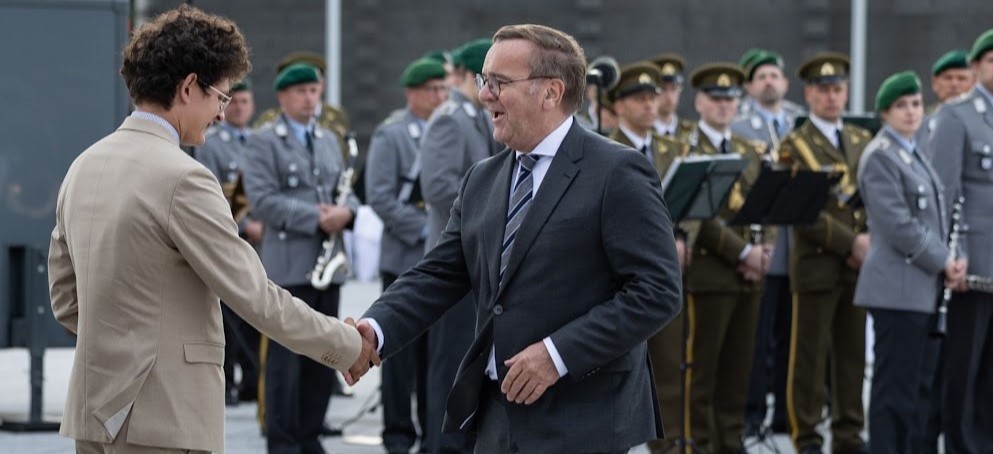Malte Ian Lauterbach
I’m a conflict researcher and consultant. I work on the things that sit uneasily between war and policy: asymmetric actors, hybrid pressure on Europe, and the logistical backbone that makes deterrence more than a speech. Over the last years I’ve written extensively on these dynamics mostly for Enno Lenze's Berlin Story News and my analysis has been cited in national and international contexts.
My writing on standardization, interoperability and deterrence have been awarded with prizes by the
German Ministry of Defense,
his excellency General Secretary Mark Rutte and the German Chancellor
Friedrich Merz. You can see a selected list of my writings below.
I also have extensive experience in community building and marketing. Over the last five years I have
helped several early-stage ventures grow from zero to multi-million revenue, primarily by creating the
structures, messaging and cadence they lacked.
It’s not my main field anymore, but it formed how I
present, write and advise.
I keep a visual record of the people and places around that work — often documentary, sometimes architectural, occasionally personal. You can see a current selection on Instagram.
Because Germany: the imprint my lawyer insists on is linked. Read it here.


Selected Works
You will find here a curated selection of my work- not everything. I don’t publish most client projects, and I don’t list every article. What is shown is what I think best represents myself: Europe under hybrid pressure, logistics as deterrence, and institutions trying to keep up.
This essay is the clearest articulation of my work on logistics as deterrence. It is selected because it cuts through abstract policy to the physical, frontline reality, demonstrating how the "logistical backbone" is not a concept, but the critical, life-saving minutes that decide a wounded soldier's survival. This piece has been awarded by the German Ministry of Defence for its sharp analysis. Original German PDF Link (English)
This essay is selected because it defines my core thinking on interoperability and deterrence. It makes the case that the "first hour" of allied defense is now European—not through political speeches, but through the material fact of deep logistical integration. This analysis has been awarded the Karl A. Lamers Peace Prize at the NATO Talk in Berlin 2025. PDF Link (English)
This analysis is what I mean by "institutions trying to keep up." It uses the Aspides mission not as a standalone event, but as a stress test that reveals the critical gap between Europe's strategic ambitions and its material capacity. It is selected because it connects the dots, framing the "knife fight" in the Red Sea as a direct rehearsal for the hybrid pressure Europe will face in its own waters.
"The next fight will begin where the fight in the Bab al-Mandab paused - in the cold chop between Bornholm's cables and the oil fields of Norway... Europe’s best chance is to have the hulls, the crews and the legal authority in place before that wake appears on the scope – so the Strait of Copenhagen never earns a name as grim as the Gate of Tears"
This article is selected because it exemplifies my core method: anchoring vast, complex conflicts in the undeniable human reality. It begins with the story of one man, Aaron, and his daughter, Hana, to provide the necessary lens for the hundreds of thousands of "numbers" that define the war in Yemen.
Link (English) Link (German)